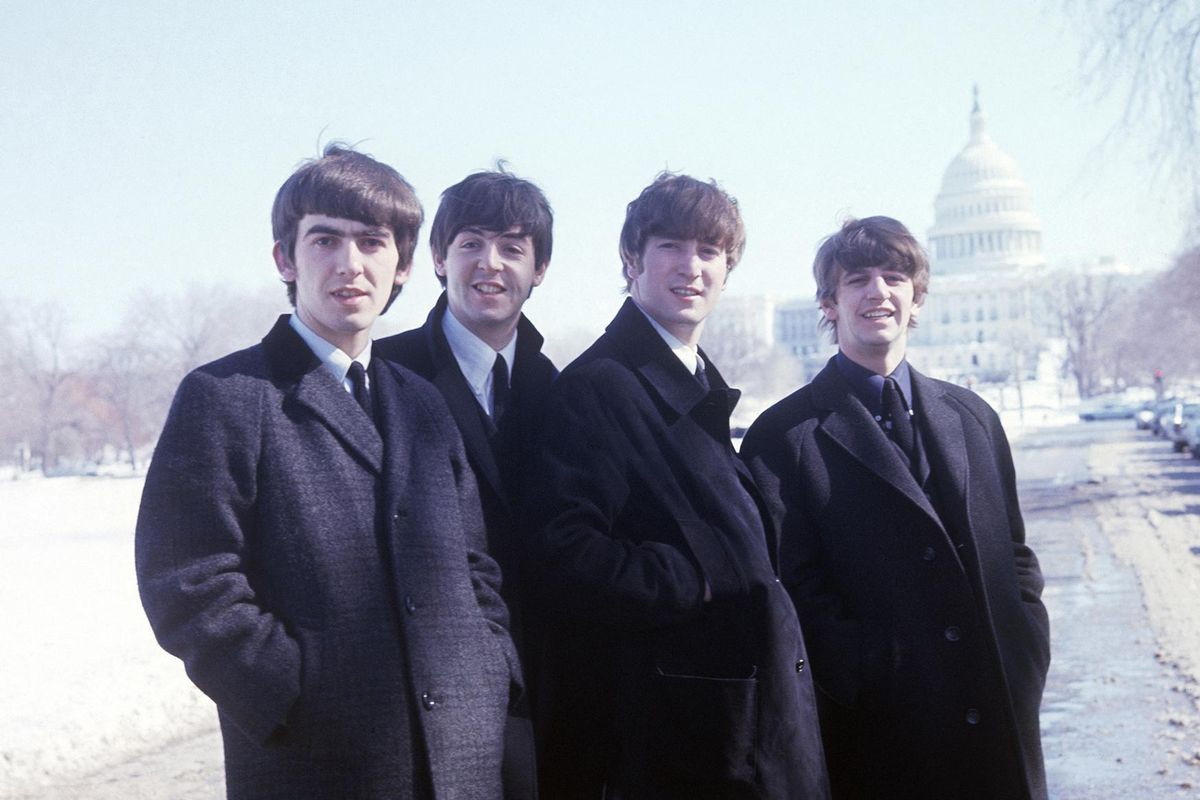Review: ‘Eight Days a Week’ a spirited look at the Fab Four

With hindsight, it’s hard to see the Beatles as anything other than the prolific legends they became. But Ron Howard’s documentary “The Beatles: Eight Days a Week” takes us back to 1963, when the guys were just a cheeky quartet from Liverpool who saw their sudden stardom as a game. With an array of archival footage and a little context, the movie offers a vivid slice of history to modern viewers and a dose of nostalgia to those who were there.
In one of many brilliant bits of old video, a television reporter asks John Lennon “which one” he is. “Eric,” he replies with a straight face. Later, another interviewer wants to know how the Beatles factor into the history of Western culture. Paul McCartney can’t hide his amusement. The band is just “a good laugh,” he explains.
Ah, the early days.
The movie features new interviews with McCartney and Ringo Starr, plus old ones with deceased members Lennon and George Harrison. We hear the four riffing during studio jam sessions and see them shaking their mop tops to the delight of young audiences.
Middle-age celebrities, including Whoopi Goldberg and Sigourney Weaver, pop up to describe their earliest memories of the band. And Malcolm Gladwell explains the rise of international teen culture in a period when the gigantic baby boom generation was under 20.
The movie’s tendency to give background information is one of its great assets. A little context from news footage – civil rights demonstrations, President John F. Kennedy’s assassination and the University of Texas sniper – offers a sense of the dramas going on outside the concerts and recording sessions.
There are no huge revelations here – certainly nothing that would shock superfans. The movie offers a taste of the go-go-go pace of touring the world, which led to exhaustion and frustration, but mostly focuses on the happier times. It all feels a little glossy, but who can complain when the vibes are so good and the tunes so catchy?
Some of the most telling moments are the briefest. Footage of the storied 1965 concert at Shea Stadium shows a glimpse of a young woman passing out and another of a police officer covering his ears to block out the shrieking girls. Sometimes it’s the little things that really re-create the feeling of being there.
Editor’s note: This review is of the Hulu version of the documentary. The theatrical release includes 30 minutes of footage from the 1965 Shea Stadium concert after the film credits.